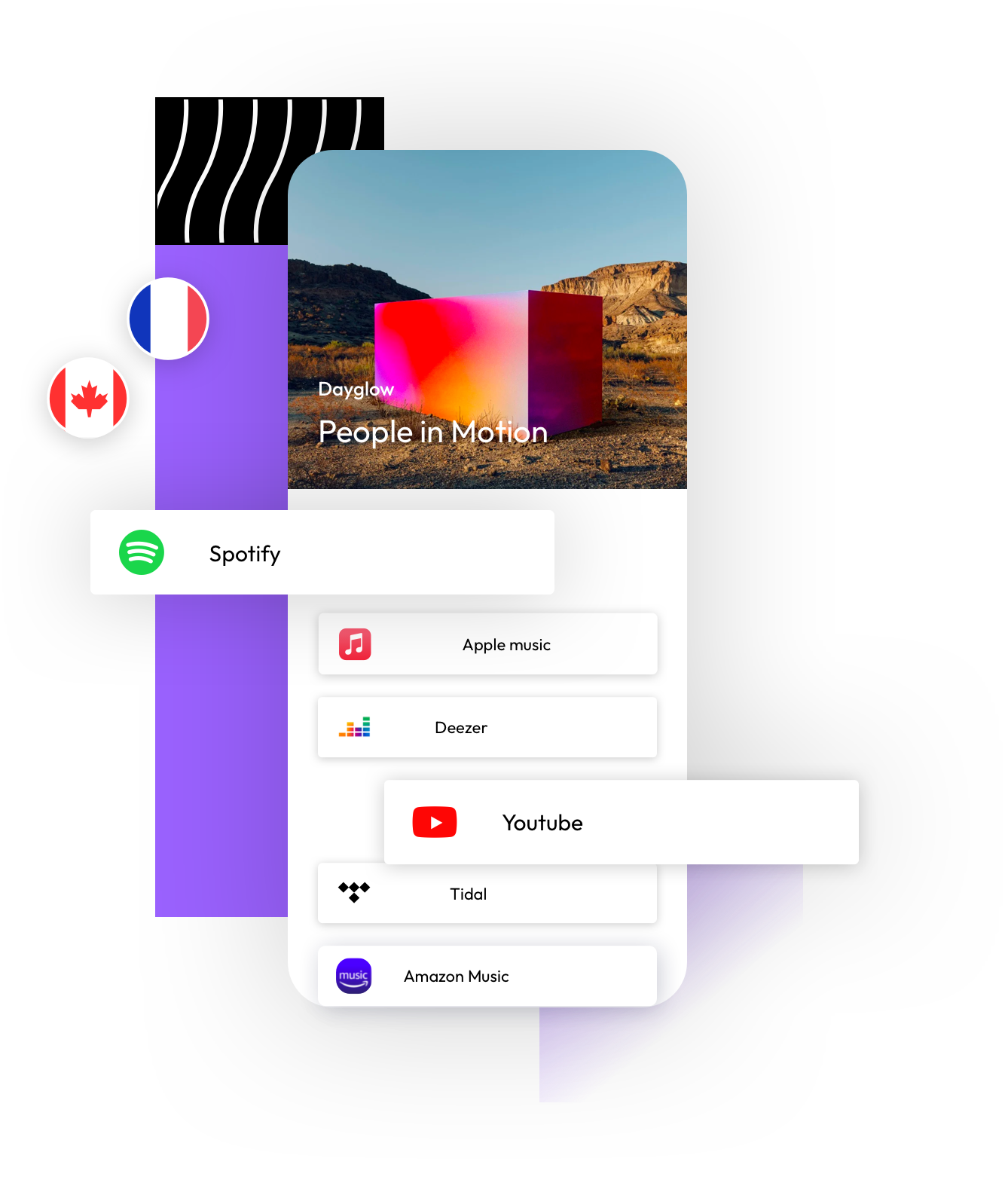Demystifying Music Royalties: A Guide to How Music Royalties Work
Music is a universal language that transcends borders and connects people from all walks of life. For musicians, songwriters, and music producers, creating and sharing their art is a labor of love. However, it's also a livelihood that relies on the complex world of music royalties. When you share your Smart Links and Pre-Saves with fans all over the world to consume your music, you want to ensure you are aware of and collecting all of the royalties that you are due. In this blog post, we'll explore the various types of music royalties and demystify how they work.
Types of music royalties:
- Performance Royalties
- Mechanical Royalties
- Synchronization (Synch) Royalties
- Print Music Royalties
- Public Performance Royalties for Composers
- Digital Performance Royalties
- Neighboring Rights Royalties
- International Royalties
- Performance Royalties
Performance royalties are earned when a song is played in public. This includes performances on the radio, TV, in live venues, and even in online streaming services. These royalties are collected and distributed by performance rights organizations (PROs) like ASCAP, BMI, and SESAC in the United States. These organizations track performances, collect fees from venues and broadcasters, and then distribute the earnings to the copyright holders.
- Mechanical Royalties
Mechanical royalties are generated when a song is reproduced and distributed in physical or digital formats, such as CDs, vinyl records, and digital downloads. The rate for mechanical royalties varies by country and is often set by government agencies. In the United States, for example, the rate is determined by the Copyright Royalty Board. Music publishers and record labels typically handle the collection and distribution of mechanical royalties to songwriters and artists.
- Synchronization Royalties
Synchronization royalties are earned when a song is used in a visual medium, such as movies, TV shows, commercials, video games, or even YouTube videos. The rights to synchronize music with visuals must be negotiated with the copyright holders (songwriters and publishers). These negotiations often result in a one-time fee and a share of the revenue generated by the media project.
- Print Music Royalties
Print music royalties come into play when sheet music or songbooks featuring a copyrighted song are sold. Songwriters and music publishers receive a portion of the revenue from the sale of these printed materials. The rate can vary depending on the agreement between the copyright holder and the publisher.
- Digital Performance Royalties
Digital performance royalties are a relatively new category of royalties, primarily associated with online streaming services like Spotify, Apple Music, and Pandora. These royalties are collected and distributed by PROs, who track plays on these platforms and ensure that artists and songwriters receive their fair share.
- Neighboring Rights Royalties
Neighboring rights royalties apply to the performers and recording artists themselves, not the songwriters. These royalties are earned when a song is played on the radio, in public places, or through online streaming services. Neighboring rights organizations collect these royalties and distribute them to the featured artists, session musicians, and record labels.
- International Royalties
With music being a global industry, royalties can cross borders. International royalties are earned when music is played or sold in foreign countries. These royalties can be collected through reciprocal agreements between PROs and organizations in other countries, ensuring that artists and songwriters receive compensation for their work worldwide.
Music royalties are the lifeblood of the music industry, providing a means for artists, songwriters, and copyright holders to earn a living from their creative works. Understanding the various types of royalties and how they work is crucial for anyone involved in the music business. Whether you're a musician, songwriter, producer, or just a music enthusiast, knowing how royalties function is essential to appreciating the artistry behind the music you love.

Maximizing Your Music Streams and Royalties with Feature.fm's Music Smart Links
Learn how using Feature.fm Smart Links can help maximize your royalty collection, ensuring you never miss a stream.



